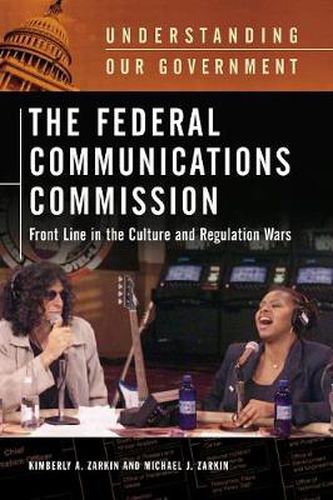Readings Newsletter
Become a Readings Member to make your shopping experience even easier.
Sign in or sign up for free!
You’re not far away from qualifying for FREE standard shipping within Australia
You’ve qualified for FREE standard shipping within Australia
The cart is loading…






In its more than seventy years of existence, the Federal Communications Commission (FCC) has emerged as one of the most important and controversial agencies in the United States government. As an independent regulatory commission, the FCC possesses an expansive legislative mandate to formulate a national communications policy. Using its authority, the FCC has done such far-reaching things as setting rates for long distance telephone service, creating rules and standards for broadcast programming, writing regulations for providers of cable television and information services, and, in recent decades, introducing competition in virtually every sector of the communications industry. As the FCC has gone about implementing its statutory mandate, it has frequently been the target of criticism by interest groups and members of Congress. Even these critics, however, would have a hard time imagining how a task as complicated as the formulation of a national telecommunications policy could be accomplished without the expertise and full time attention of an agency such as the FCC.
The first work to integrate detailed information on the FCC as an organization-its politics, key policy initiatives, and legal issues-offers students, researchers, and general readers alike easy access to an array of topics related to the FCC. Chapters discuss the agency’s origins, organization, programs, controversies, notable people, and significant court cases. Topics include the Telecommunications Act of 1996, Michael Powell, Verizon Communications Inc. v. FCC, the Fairness Doctrine, telephone-cable competition, and indecency. A comprehensive annotated bibliography lists sources for further research.
$9.00 standard shipping within Australia
FREE standard shipping within Australia for orders over $100.00
Express & International shipping calculated at checkout
In its more than seventy years of existence, the Federal Communications Commission (FCC) has emerged as one of the most important and controversial agencies in the United States government. As an independent regulatory commission, the FCC possesses an expansive legislative mandate to formulate a national communications policy. Using its authority, the FCC has done such far-reaching things as setting rates for long distance telephone service, creating rules and standards for broadcast programming, writing regulations for providers of cable television and information services, and, in recent decades, introducing competition in virtually every sector of the communications industry. As the FCC has gone about implementing its statutory mandate, it has frequently been the target of criticism by interest groups and members of Congress. Even these critics, however, would have a hard time imagining how a task as complicated as the formulation of a national telecommunications policy could be accomplished without the expertise and full time attention of an agency such as the FCC.
The first work to integrate detailed information on the FCC as an organization-its politics, key policy initiatives, and legal issues-offers students, researchers, and general readers alike easy access to an array of topics related to the FCC. Chapters discuss the agency’s origins, organization, programs, controversies, notable people, and significant court cases. Topics include the Telecommunications Act of 1996, Michael Powell, Verizon Communications Inc. v. FCC, the Fairness Doctrine, telephone-cable competition, and indecency. A comprehensive annotated bibliography lists sources for further research.